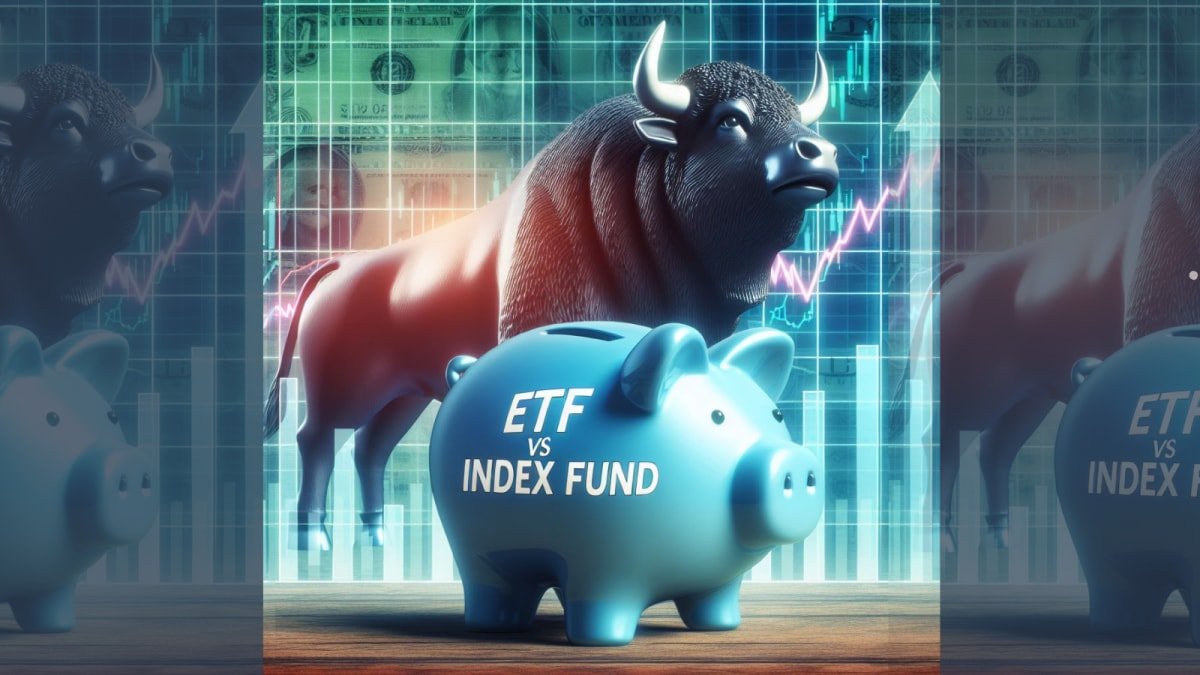Last Updated:
ETFs Vs Index Funds: Passive investment options like ETFs and Index Funds are getting traction from investors especially when the market isn’t offering good returns. Let’s get to know what they are and their pros and cons.

ETF Vs Index Fund: What they are and how differ with each other.
ETF Vs Index Fund: The Indian stock market is under pressure due to a flight of foreign institutional investors (FIIs). In the past few months, stocks have given investors almost flat or negative returns, with benchmark indices Nifty and Sensex facing sharp corrections.
“A combination of negative factors such as relentless FII selling, falling rupee, expensive valuations and the US threat of reciprocating tariff levies continue to drive investors away from Indian equities,” according to Prashanth Tapse, Senior VP (Research), Mehta Equities.
At this juncture, Indian investors’ inclinations are shifting towards other investment options known as passive investment like Index Funds and Exchange-Traded Funds (ETFs).
Passive investment options like Index Funds and Exchange-Traded Funds (ETFs) are attracting significant interest from Indian investors.
What Are ETFs And Index Funds?
Both ETFs and Index Funds aim to mirror the performance of specific market indices. While their objectives are similar, they differ significantly in their structure, trading mechanisms, and associated costs.
ETFs Vs Index Funds: A Closer Look At Key Differences:
Minimum Investment: ETFs don’t have any minimum investment. You can purchase even one share. On the other hand, Index Funds usually have a minimum investment amount.
Trading: ETFs are traded on stock exchanges like individual stocks, allowing investors to buy or sell them throughout the trading day at market prices. Conversely, Index Funds are priced and traded only once a day at their Net Asset Value (NAV) at the market’s close.
Flexibility: ETFs offer investors the advantage of capitalising on intraday price movements, making them suitable for active trading strategies. Index Funds, however, lack this flexibility as they are bought or sold only at the end of the trading day.
Demat Account: Investing in ETFs requires a demat account as they are listed on stock exchanges. Index Funds, structured as mutual funds, do not necessitate a demat account, making them accessible for investors seeking indirect market exposure without the need for a demat account.
Systematic Investment Plans (SIPs): Index Funds can be purchased through SIPs, allowing investors to invest small amounts regularly over a predetermined period. ETFs, in most cases, do not offer this feature, which might not be ideal for investors preferring a disciplined investment approach.
Expense Ratios: ETFs generally have lower expense ratios than Index Funds due to their passive management style, minimising operational costs. This makes ETFs attractive for long-term investors aiming to minimise costs while gaining market exposure.
In conclusion, both ETFs and Index Funds serve as valuable tools for passive investing in India, each with its advantages and limitations. The choice between the two depends on individual investment goals, risk tolerance, liquidity needs, and preferred investment approach.
Disclaimer: Investors are advised to carefully consider these factors and consult with a SEBI-registered investment advisor for personalised guidance to make well-informed investment decisions.





